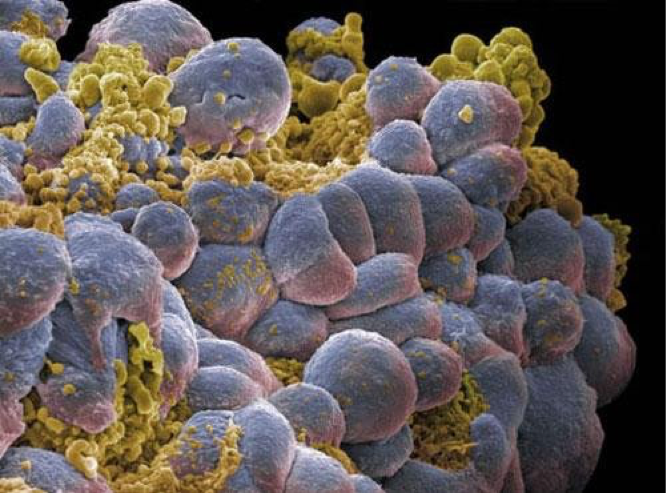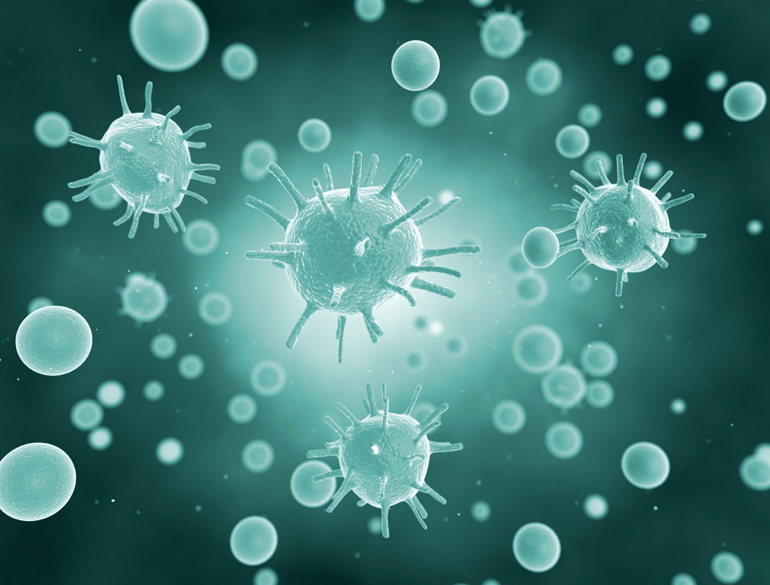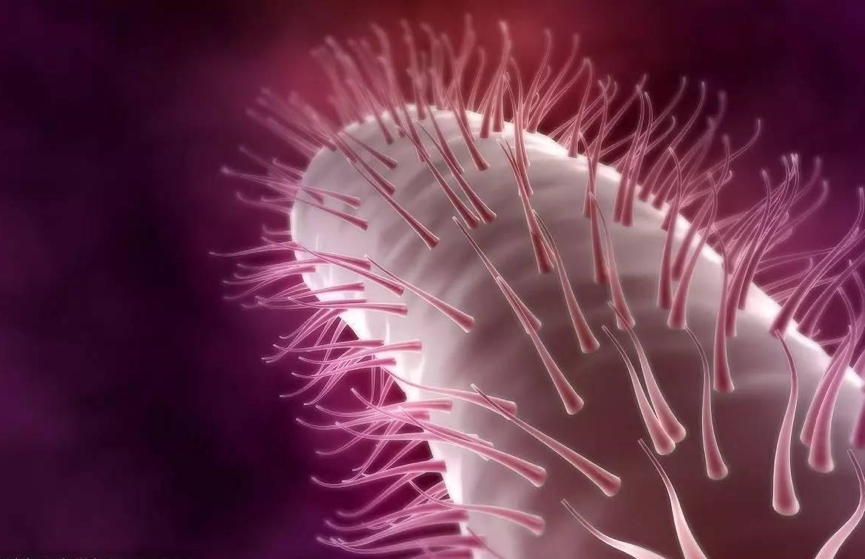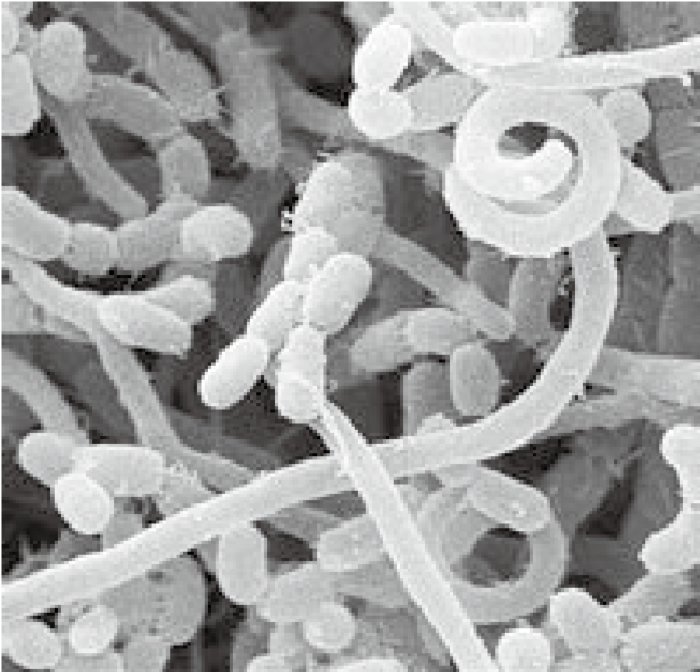NK cells
The immune system can always coordinate the complex tasks of the innumerable and different functions of the immune forces to carry out the protection of the body. Research shows that the normal human body produces hundreds of cancerous cells every day, but they are all destroyed by the immune cell Corps before they form a cancer focus. Among these immune cell groups, natural killer cells (Natural killer cell, NK cells) are the most important cells in the natural immune system, playing a pivotal role.
NK cells are the core components of the innate immune system, and are also the strongest and most effective immune cells against cancer cells and viruses. It can inhibit the invasion of bacteria and viruses, clear up cancerous and diseased cells, avoid and prevent the occurrence of tumors, and effectively improve the immune level of the body, regulate the sub-health state, and delay the aging of the body. NK cells have cytotoxic effects on almost all common cancer cell types, including lung cancer, breast cancer, liver cancer, lymphatic cancer, esophageal cancer and so on. They also have multiple killing effects on multidrug-resistant tumor cells.
NK cells and tumor prevention
NK cells do not need the pre stimulation of tumor antigens, which can directly kill tumor cells and induce apoptosis by releasing cytokines. It is recognized as the first line of defense in the medical field. As the cytotoxic activity of NK cells has no MHC restriction and does not depend on antibodies, it is called natural killer cell. NK cells are cruised in human blood vessels and perform immune surveillance functions. When they encounter cancerous, pathological or senescent cells, they start immune defense function.
Killing tumor cells
Identification and removal of persistent malignant cells in time

Anti virus
In vivo experiments show that NK cells take the role of the first natural defense line of the human body, which can clear the infected cells and prevent the spread of the virus.

Anti cell parasitic bacteria
NK cells can also kill parasitic bacteria such as mycobacteria, Lester bacteria and Leishmania.

Antifungal
Candida albicans is found in human skin, gastrointestinal tract and oral cavity. NK cells play an important role in resisting Candida albicans, and can directly kill fungi.

NK cells and Antiaging
NK cell is the core part of human innate immunity. It can directly improve and regulate human immunity and nervous system, and secrete related factors to improve the body environment, so as to maintain the balance of the body system. At the same time, NK cells can greatly improve the immune capacity of the human body, radiate the vitality of the body, delay the pace of aging, and have a great help against aging.
With the growth of people's age and the appearance of aging, the number of immune cells in the body, including NK cells, is reduced and the vitality is reduced. The mechanism of NK cell aging is isolated from the blood of a few NK cells, using international advanced technology and methods, so that the number of NK cells were proliferated, then from intravenous infusion in vivo, correction and function caused by the decline in the number of immune cells of aging problems, so that these NK cells into the body exercise anti infection, anti tumor function. Regular NK cell transfusion can keep the immune function in a good state, and get sick or not sick, keep healthy and young.
Thus, the purpose of anti aging, health and longevity, and delaying senility is achieved.
NK cell dominance
The number of effective cells is large and the proportion of effector cells is high, and the effect cell >90%
Serum-free culture, to avoid the occurrence of potential infectious diseases and to reduce rejection.
Strict quality control, back transfused active cell >95%
Methods to Enhance Immunity Six immune cell therapies
Six kinds of immune cell therapy refers to the immune system will play all the immune cells in vitro after a lot of breeding and re-injection into the body after treatment. Instead of relying solely on the strength of some kind of immune cells, we are cultivating all six types of immune cells and enhancing the overall function of the immune system to play the role of "preventing disease" and "maintaining good health." Currently, 6 immune cell therapies have been applied to the field of cancer treatment depending on their effects.
Reasons for cancer treatment
NK.NKT cells
"NK cells" and "NKT cells" two kinds of immune cells, cancer cells have a special immune effect. Therefore, the Company paid great attention to breeding and breeding of these two kinds of cells.
Nurturing in a clean room of class 10000 cleanliness.
Pre-incubation of immune cells micrographs
Nurtured micrographs
The actual effect of 6 kinds of immune cell therapy
The "global only" treatment for improving the overall ability of the immune system. Because of the use of the patient's own immune cells for treatment, there is no side effect. The actual treatment of cancer patients who are distressed by the side effects of chemotherapy.
[Example] 85-year-old (male) pancreatic cancer + liver metastases
DCH therapy (6 immune cell therapy + dendritic cell therapy once a week for 2 weeks)
Anticancer agent (GEM600 mg: injected once every 2 weeks)
Before treatment
After 3 months of treatment (the shadow of the tumor disappeared)
6 kinds of immunotherapy treatment process
Six kinds of immunotherapy through blood, drip input method.
In the {blood}, {nurture}, {injected into the body} process, about 2 weeks after the blood can be nurtured cells into the body.
However, if you are a patient other than the one to be treated as described below, you will not be able to cultivate the cells.
Interview, blood for about 30 minutes
Cells are incubated for about 14 days
Enter about 1 hour
patient
Blood
Telecentric separation
Six kinds of mixed cells and dendritic cells were extracted
Confirm the cell status
Nurture
Six kinds of mixed cells multiply
Dendritic cells recognize WT-1 antigen
Check if the target cells are indeed multiplied
Cell phenotype check
Safety experiment
Into the body
Healing
Patients outside the treatment
AIDS patients, patients who have undergone organ transplantation or allogeneic hematopoietic stem cell transplant recipients, and in some patients with leukemia (malignant lymphomas, human T-lymphotropic virus type 1), may develop leukemia through in vitro culture The number of cells and human leukemia cells has increased since they are also classified as patients outside the therapeutic population.